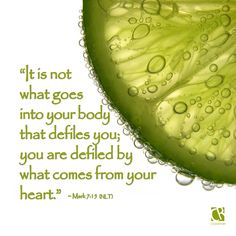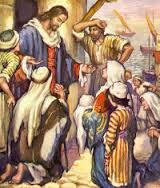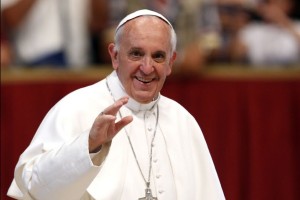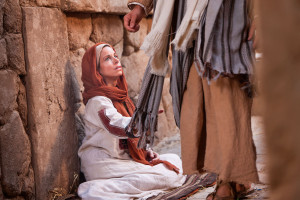 One Sunday a young father came into church with his three young children. As was their family custom, they sat in the very front row so the children could see what was going on in the sanctuary. This particular service included an infant baptism. The six year old was quite taken by this, observing that Father was saying something and pouring water over the baby’s head. With a puzzled look on her face, the little girl turned to her father and asked, “Daddy, why is he brainwashing that little baby?”
One Sunday a young father came into church with his three young children. As was their family custom, they sat in the very front row so the children could see what was going on in the sanctuary. This particular service included an infant baptism. The six year old was quite taken by this, observing that Father was saying something and pouring water over the baby’s head. With a puzzled look on her face, the little girl turned to her father and asked, “Daddy, why is he brainwashing that little baby?”
Indeed what is required by each of us is that we allow our brains to be washed by God – our brains and our hearts as well. Jesus was telling us that what really counts is that which is in our hearts. It is from within, from the human heart, that evil intentions come…. and defile a person.”
We need to be heart-healthy — taking seriously what is in our hearts – people who spend time in lectio, time in the presence of the Lord. We have a responsibility to do what we can to make our community a heart-healthy place. It follows that to have a heart-healthy community requires for each of us to feed on a steady diet of soul food – and just the ham hocks and collards greens kind. Good things come from hearts that have been fed on soul food — Scripture — love of neighbor — devotion to God – nourished by prayer both communal and private.
Jesus makes it clear – in so many words – “We have met the enemy and they are us.” We are at one and the same time perpetrators and victims. And being the victim of our own making furthers our capacity to inflect ill on another. “The human heart,” or the human will, remains a complex thing. But if we fill our hearts with good things, our minds with chaste, charitable, other-directed thoughts – that’s what will come out of our mouths. God will bless us, and through us, will bless the world.
The words of a hymn we sang earlier this week say it well:
May we be blest with hearts full of love – hearts full of joy – with peach in our days … this will enable us to be a blessing to others – keep God’s presence abiding with in – and reap the reward of an abundance of friends at our side.
Have you ever seen Suze Orman on TV? Well, she is a financial planner and author. She tells of a period when her career was not so successful. During that time she struggled to save face, to maintain an image of success. She continued to entertain her friends at fine restaurants and to drive her luxury car to keep up the image of a successful professional. The truth was that every dinner, every car payment, every tank of gas was putting her deeper into debt.
Many folk who believe in God are like Suze. They look good. They keep up the appearances. They try to conform to the traditions of culture and our faith – but inwardly they are empty… inwardly they are impoverished – and the more they try to conform on the outside to what supposed to come from inside, the worse off they get.
What defiles a person are the unclean things that originate from within a person, not those that come to us from without. What defiles a person is not what it is we eat, nor who it is that we eat with, rather it is our anger, our pride, our jealousy, pride and superiority that forgets Benedict’s lesson “obedience is a blessing to be shown to all.”
Our acts of goodness and love arise from within when we allow God to do good within us. Our gentleness, our faithfulness, our kindness grow not according to our attempts to keep some law or directive about how we should act … how to be faithful, kind or gentle … but rather they grow out of the word that is implanted within our hearts and minds by God – by meditating on what it is that God has done for us – and is doing for us – when we practice an attitude of gratitude.
But, this can occur only if we welcome the Word, ponder the Word, let it take root in us and then allow it to prompt us to action. It is God who makes us holy. For our part it requires perseverance in the journey. As Joan Chittister writes in this week’s eblast: “The gift of perseverance in the journey to wholeness is the treasure trove of the human spirit. Sanctity, like everything else in life, is not an event. It is a process of coming to know the clay of the self and then shaping it into a thing of beauty. This thing called union with God, sanctity, holiness, is not a matter of going through religious hoops. It is a matter of winning the contest with the self that leads us to the best in us. Becoming holy is not an attempt to become someone else. It is about becoming the fullness of ourselves.”
Back to the 6-year-old’s query: Are you ready to be brain-washed?
Continue Reading





